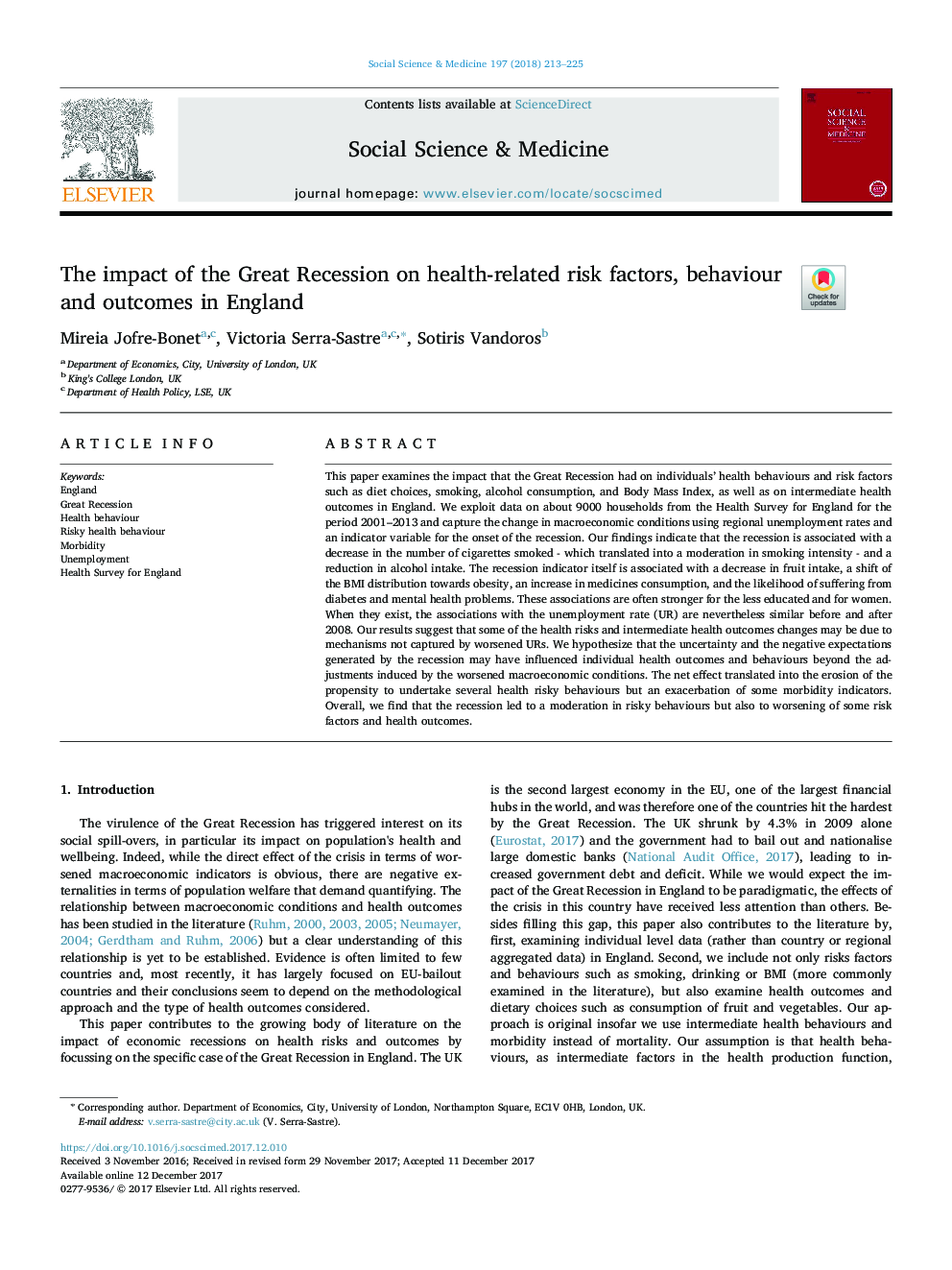| Article ID | Journal | Published Year | Pages | File Type |
|---|---|---|---|---|
| 7328815 | Social Science & Medicine | 2018 | 13 Pages |
Abstract
This paper examines the impact that the Great Recession had on individuals' health behaviours and risk factors such as diet choices, smoking, alcohol consumption, and Body Mass Index, as well as on intermediate health outcomes in England. We exploit data on about 9000 households from the Health Survey for England for the period 2001-2013 and capture the change in macroeconomic conditions using regional unemployment rates and an indicator variable for the onset of the recession. Our findings indicate that the recession is associated with a decrease in the number of cigarettes smoked - which translated into a moderation in smoking intensity - and a reduction in alcohol intake. The recession indicator itself is associated with a decrease in fruit intake, a shift of the BMI distribution towards obesity, an increase in medicines consumption, and the likelihood of suffering from diabetes and mental health problems. These associations are often stronger for the less educated and for women. When they exist, the associations with the unemployment rate (UR) are nevertheless similar before and after 2008. Our results suggest that some of the health risks and intermediate health outcomes changes may be due to mechanisms not captured by worsened URs. We hypothesize that the uncertainty and the negative expectations generated by the recession may have influenced individual health outcomes and behaviours beyond the adjustments induced by the worsened macroeconomic conditions. The net effect translated into the erosion of the propensity to undertake several health risky behaviours but an exacerbation of some morbidity indicators. Overall, we find that the recession led to a moderation in risky behaviours but also to worsening of some risk factors and health outcomes.
Related Topics
Health Sciences
Medicine and Dentistry
Public Health and Health Policy
Authors
Mireia Jofre-Bonet, Victoria Serra-Sastre, Sotiris Vandoros,
